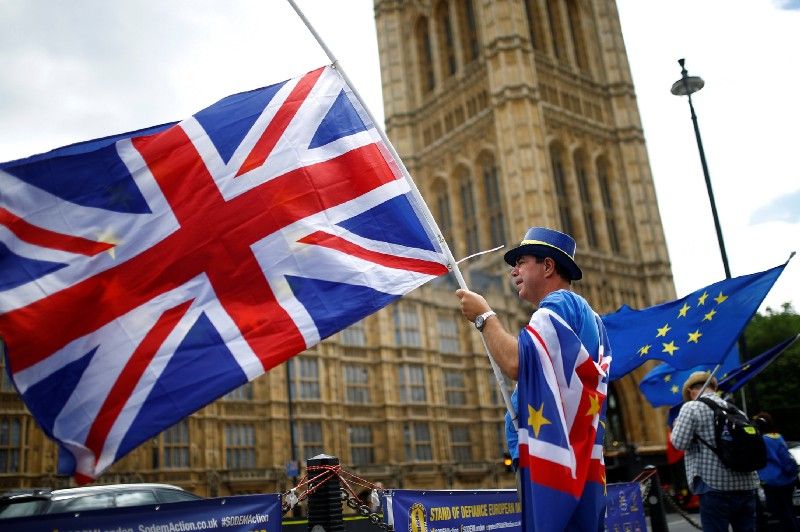Tomorrow, June 23, marks the two-year anniversary of the Brexit vote in the United Kingdom. Talk of Hard Brexit, Soft Brexit, a customs union, “maximum facilitation,” and a “standstill transition” leaves the world wondering what on earth is going on and where this is headed. The principal problem is that UK Prime Minister Theresa May’s government has been unable to define exactly what outcome it wants.
Frankly, your Friday author would rather hit himself in the head with a hammer than write about Brexit. We all know its importance for the future of Britain and of Europe, but at this stage, it’s an awfully dry subject. That’s why the Signal team is now batting around ideas to make the Brexit story more interesting.
In that spirit, we suggest:
- The Great Brexit Bakeoff — Let’s have Prime Minister May and wannabe prime minister Boris Johnson compete to see who bakes the best shepherd’s pie. (Your Tuesday author suggested hash brownies.) Winner sets British terms of exit. Loser spends two weeks in a one-bedroom flat with Donald Trump, 11 Glaswegian anti-Trump protesters (with megaphones), no hot water, no internet connection, six Rottweilers, and no dog food.
- The BrexitVision Song Contest — Best pop song performer becomes chief EU Brexit negotiator for six months.
- Televised underwater Brexit Talks — To dramatize climate change, officials in the Maldives once held an underwater cabinet meeting. To dramatize the need to make Brexit talks more fun — and to give them useful urgency — let’s put UK and EU officials in diving gear and drop them in the North Sea for a few hours. Tell them they’re not allowed to resurface without demonstrable Brexit progress and until they pledge to stop using so much bureaucratic jargon.
Send us your ideas on how best to make Brexit more interesting, and we’ll pass the best of them to the relevant parties…
